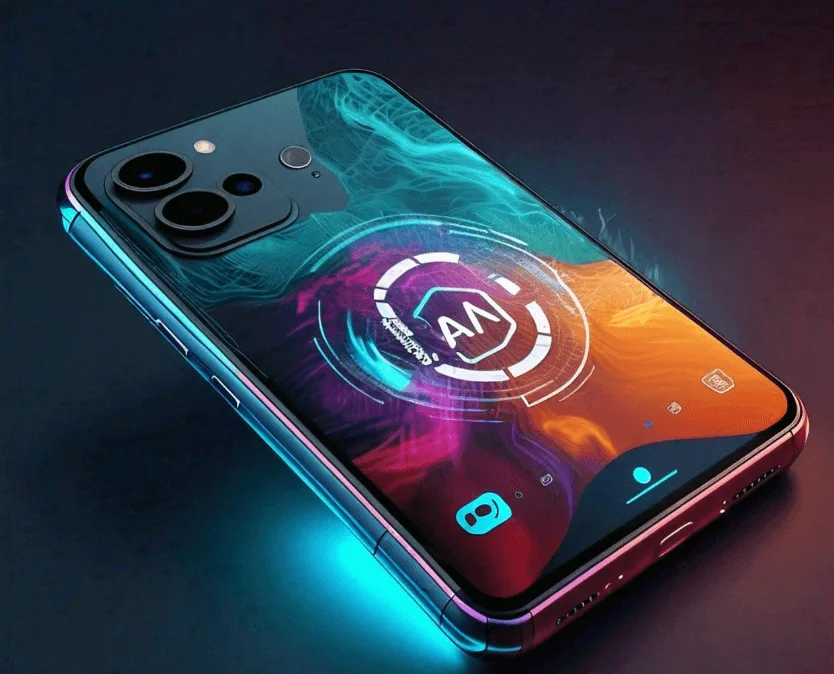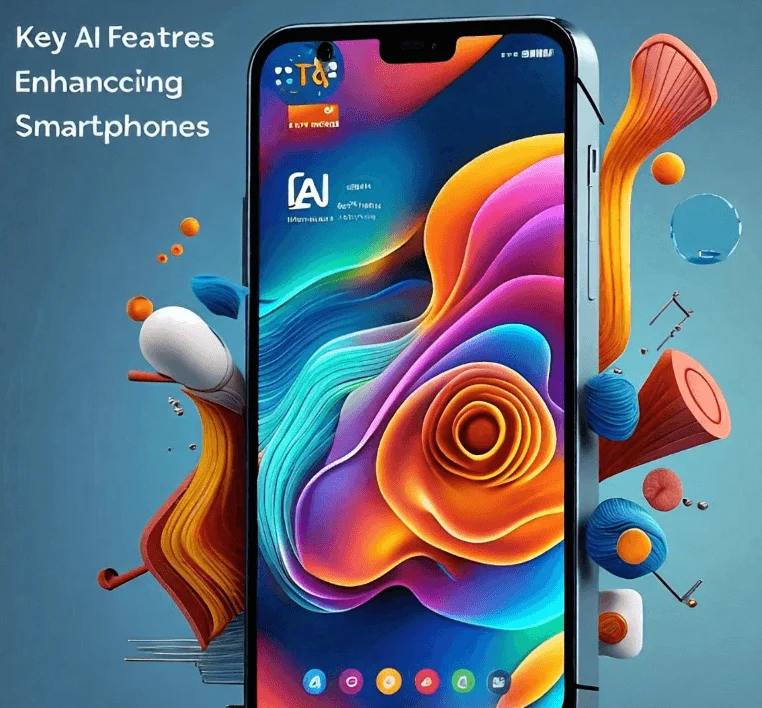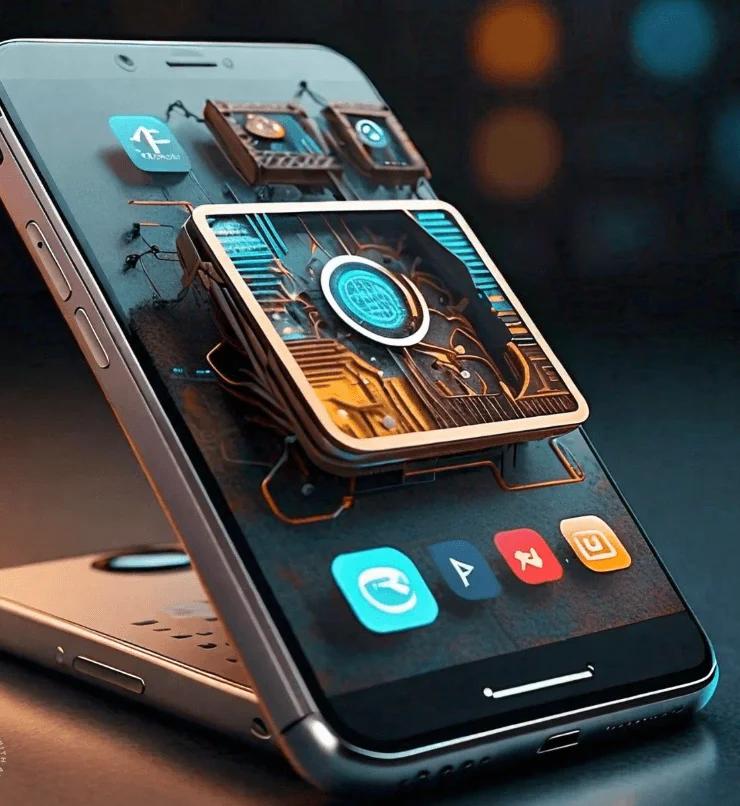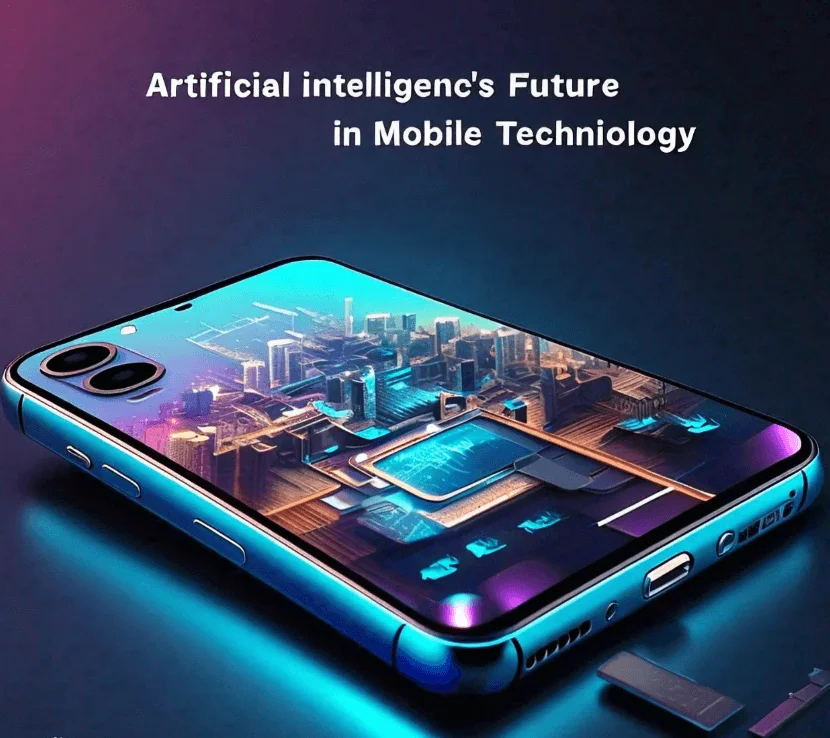
Artificial intelligence has progressed from being a mere trend or hype of the information technology sector to being a real dynamism in the Mobile Technology market. Incorporating the new AI features in phones has even affected the performance and usability of smart phones, and consequently give new trends to the smart phone industry. Thus, this article provides a penetration into the state of the art of using artificial intelligence in mobile devices along with understanding the improvements that new rollouts brought to mobile technology and outline the future of smart devices.
The Role of AI in Mobile Devices

Today it is challenging to overestimate the impact of artificial intelligence as one of the major trends in the sphere of mobile technologies. Just like 5G, foldable displays, and touch screens are still evident in the smartphone’s architecture today, integrated Artificial intelligence is transforming these gadgets in deeper graduations. Unlike previous innovations, which led only to small refinements, Artificial intelligence defined the new trend of the mobile technology making smartphone smarter, more responsive, and personalized.
Key AI Features Enhancing Smartphones

The most recent rollouts demonstrate the continuous advancements in artificial intelligence-driven capabilities. These developments can be grouped into several key categories:
- On-Device Artificial intelligence Processing: The latest smartphones have introduced AI chip and processors that enable the mobile device performance artificial intelligence tasks offline. This change is effective in optimization of the processing time, enhanced security and privacy of users, and overall minimized latency which results in improved real time interactions.
- Artificial intelligence-Powered User Experience: Developers intend to use artificial intelligence in mobile devices to introduce the platform to the user’s preferences and usage patterns. For instance, today’s smartphones employ artificial intelligence to suggest most or all that the user needs or may require as well as recommend apps, and even schedule tasks. From customizing the home screen to interpreting natural language for voice commands, Artificial intelligence are making these interactions seamless and stiff free.
- Artificial intelligence in Photography and Video: Smartphone cameras known to be revolutionized by artificial intelligence. Machine learning is now able to improve the quality of the picture, add effects and perform a minor miracle: correct the group photograph and choose the best look among all the participants.
Notable Artificial Intelligence-Integrated Smartphone Releases in 2024

Google Pixel 8 Pro
Once artificial intelligence, Google is setting records with Artifical intelligence integrated into the Pixel 8 Pro. The device is very enriched with Artificial Intelligence functions like the Magic Eraser in photos, filtering Calls with artificial intelligence, and the Circle to Search for the information according to the context. Based on current updates in Artificial intelligence by Google, this is one of the most equipped Artificial intelligence smartphones in the market in terms of the artificial intelligence capabilities.
OnePlus 12
The latest device, the OnePlus 12 is also receiving attention as this mobile phone provides top-tier Artificial intelligence performance at a relatively low cost. It features Google’s Gemini Artificial intelligence model, which enhances everything from content summarization to advanced photo editing. This makes the OnePlus 12 a popular choice for users looking for value-packed Artificial intelligence features.
Samsung Galaxy S24 Ultra:
The Galaxy S24 Ultra integrates Samsung’s proprietary Galax Artificial intelligence with Google Gemini to deliver cutting-edge artificial intelligence experiences. Such capabilities as, for instance, the real-time translation during calls and such exclusive artificial intelligence-powered feature as Generative Edit for pictures prove that Yoti 6 is one of the best Artificial intelligence smartphones in its segment.
Samsung Galaxy Z Flip6 and Z Fold6
Samsung’s foldables have also integrated Artificial intelligence technology as well. The Z Flip6 uses artificial intelligence in its compact form factor while the Z Fold6 incorporates a touch screen experience reminiscent to a tablet. Whether it is real-time language translation or intelligence artificial intelligence camera adjustment, all these foldable devices embody innovative design coupled with Artificial intelligence functions.
Xiaomi 14 Ultra
The best is artificial intelligence and high-end features that are integrated in Xiaomi’s flagship device in the manufacture of a Qualcomm Snapdragon 8 Gen 3 chip and an advanced camera system by Leica. Using artificial intelligence in cameras integrated in the Xiaomi 14 Ultra, and accompanied with WQHD+ AMOLED display assures the device is a worthy contender in the higher segment of smartphones.
Artificial Intelligence’s Future in Mobile Technology

These latest rollouts avartificial intelligencel a future filled with potential for Artificial intelligence mobile product. Optimization of the performance of machine learning, deep learning, and natural language processing algorithms will always increase the level of intelligence of smartphones. Further advancement in technology in future may allow smartphones to forecast users’ behaviors in real-time, providing them with treatments they have never before imagined.
New technologies like computer vision with the help of artificial intelligence could also add to features and functions like, object recognition in real time and applications of AR. We can also look forward to Artificial intelligence taking charge of enhancing smart phone into other social aspects including smart homes and health care systems.
Challenges and Ethical Considerations
Artificial intelligence has created new horizons; however, some of the biggest issues include privacy, data protection, and bias. Artificial intelligence systems involve a large amount of user data that we need to protect. To securely process and store users’ data, manufacturers need to take measures that include implementing sound security protocols and following the guidelines set by privacy laws.
Furthermore, it is worth noting that artificial intelligence systems depend on time and data, and they can perform only as well as the data with which they were trained. The results arising from this data; therefore, may be a biased decision or present discrimination. Thus, to solve these problems, there are constant attempts to design impartial, transparent Artificial intelligence systems.
Conclusion
The latest artificial intelligence rollouts in mobile devices have transformed smartphones into intelligent, personalized, and responsive tools. On-device a processing, artificial intelligence-powered user experiences, and artificial intelligence-driven photography and video editing are just a few examples of how artificial intelligence is revolutionizing mobile technology. While these advancements hold tremendous promise, they also rartificial intelligencese important ethical considerations around privacy, data security, and algorithmic bias. In my opinion, the future of artificial intelligence in mobile devices will depend on striking a balance between innovation and responsibility. As artificial intelligence continues to shape the smartphone industry, what do you think is the most critical factor for manufacturers to consider in order to ensure artificial intelligence benefits users while minimizing its risks?
Read Also: AI-Powered Live Chat Summaries: A Game-Changer For YouTube Users

